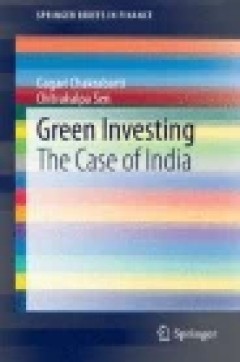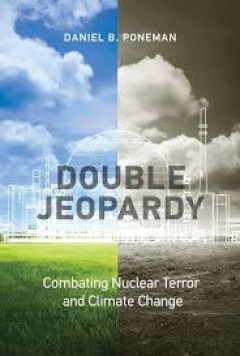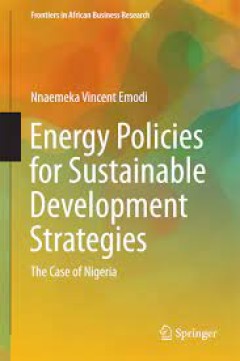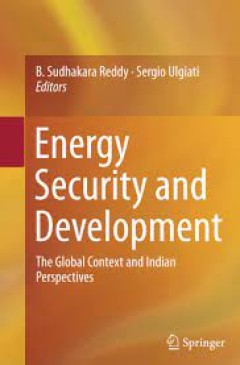Filter by

Green Investing the Case of India
This book seeks to answer the essential question of the investment-worthiness of green instruments. It is evident that investing in green and energy-efficient firms will be the most profitable choice for wise investors in the years to come. The reconciliation of the social choice for green technology and investors’ choice for gray technology will be automatically achieved once green firms bec…
- Edition
- -
- ISBN/ISSN
- 978-81-322-2025-1
- Collation
- IX, 102
- Series Title
- -
- Call Number
- 330 CHA g

Double jeopardy :combating nuclear terror and climate change
Making the case that we can use nuclear power to combat climate change even as we reduce the risks of nuclear terror. Humanity faces two existential threats: nuclear annihilation and catastrophic climate change. Both have human origins, and both are linked to the use of nuclear energy. Inherent in the use of atomic fission is the risk that the technology and materials can be diverted to terrori…
- Edition
- -
- ISBN/ISSN
- 9780262353687
- Collation
- 1 online resource (288 pages) :illustrations.
- Series Title
- -
- Call Number
- -

Energy Policies for Sustainable Development Strategies the Case of Nigeria
In this book, a number of long-term energy scenarios are developed for Nigeria considering the impact of vital factors that may influence energy policies in the country’s future energy system. The energy scenarios were developed through the Long-Range Energy Alternatives Planning System (LEAP) model. The model identified the future energy demand and supply pattern using a least-cost combinati…
- Edition
- 1
- ISBN/ISSN
- 978-981-10-0974-7
- Collation
- 85 b/w illustrations
- Series Title
- -
- Call Number
- -

Energy Security and Development the Global Context and Indian Perspectives
This volume provides a systematic framework for energy suppliers, policy makers, academics, students, and all others interested in energy security, and analyzes key issues concerning energy, security and sustainability with the help of a wealth of data. While sustainability is the broadest objective, energy security is an important part of it, at the global, national and societal levels. The de…
- Edition
- 1
- ISBN/ISSN
- 978-81-322-2065-7
- Collation
- 117 b/w illustrations
- Series Title
- -
- Call Number
- -

Transforming nuclear safeguards culturethe IAEA, Iraq, and the future of non-…
The role of organizational culture in international efforts to stop the spread of nuclear weapons.In Transforming Nuclear Safeguards Culture, Trevor Findlay investigates the role that organizational culture may play in preventing the spread of nuclear weapons, examining particularly how it affects the nuclear safeguards system of the International Atomic Energy Agency (IAEA), the paramount glob…
- Edition
- -
- ISBN/ISSN
- 9780262369763
- Collation
- 1 online resource.
- Series Title
- -
- Call Number
- -

Electrify :an optimist's playbook for our clean energy future
"Saul Griffith lays out an accessible, rigorously-researched plan to decarbonize the U.S. economy in time to address climate change. His plan, in short, is to "electrify everything." Griffith uses his deep understanding of U.S. energy flows, materials, and clean energy technologies to show that decarbonizing in time to meet climate goals is not only possible, but can be done without major sacri…
- Edition
- -
- ISBN/ISSN
- 0262367289
- Collation
- 1 online resource.
- Series Title
- -
- Call Number
- -

Helmholtz and the conservation of energy :contexts of creation and reception
"Exhaustive history of Helmholtz's work on the conservation of energy and its broad acceptance"--OCLC-licensed vendor bibliographic record.
- Edition
- -
- ISBN/ISSN
- 9780262363839
- Collation
- 1 online resource.
- Series Title
- -
- Call Number
- -

GrowthFrom microorganisms to megacities
OCLC-licensed vendor bibliographic record.
- Edition
- -
- ISBN/ISSN
- 9780262354516
- Collation
- 1 online resource (688 pages).
- Series Title
- -
- Call Number
- -

Cooperating for the climate :learning from international partnerships in Chin…
"An accessible yet in-depth analysis of recent developments in US-China clean energy collaboration, the most important bilateral relationship in the world in terms of climate change"--OCLC-licensed vendor bibliographic record.
- Edition
- -
- ISBN/ISSN
- 9780262372640
- Collation
- 1 online resource
- Series Title
- -
- Call Number
- -

Nuclear choices for the twenty-first century :a citizen's guide
"Citizen's guide to making informed choices about nuclear technologies, energy, and weapons"--OCLC-licensed vendor bibliographic record.
- Edition
- -
- ISBN/ISSN
- 026236302X
- Collation
- 1 online resource.
- Series Title
- -
- Call Number
- -
 Computer Science, Information & General Works
Computer Science, Information & General Works  Philosophy & Psychology
Philosophy & Psychology  Religion
Religion  Social Sciences
Social Sciences  Language
Language  Pure Science
Pure Science  Applied Sciences
Applied Sciences  Art & Recreation
Art & Recreation  Literature
Literature  History & Geography
History & Geography